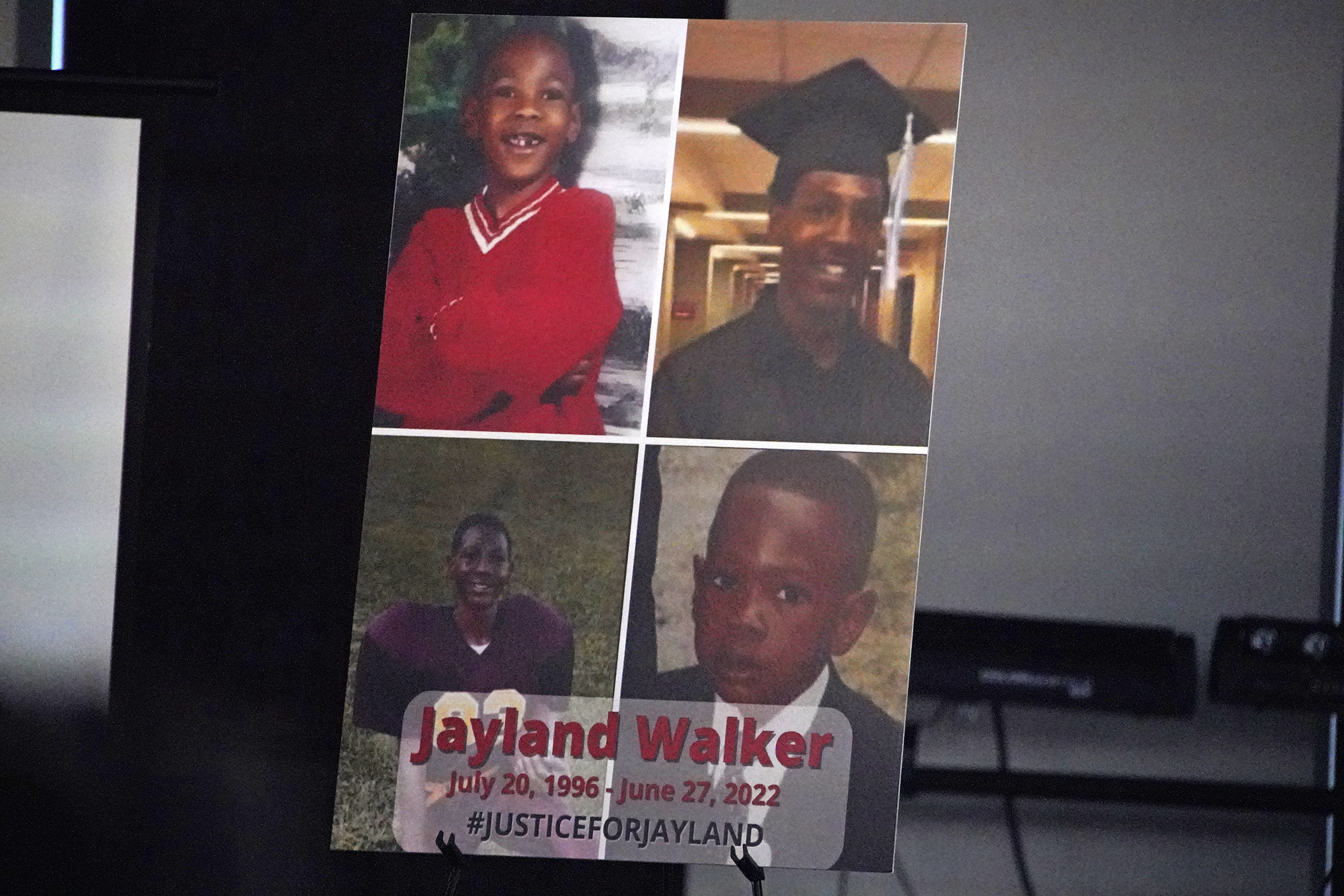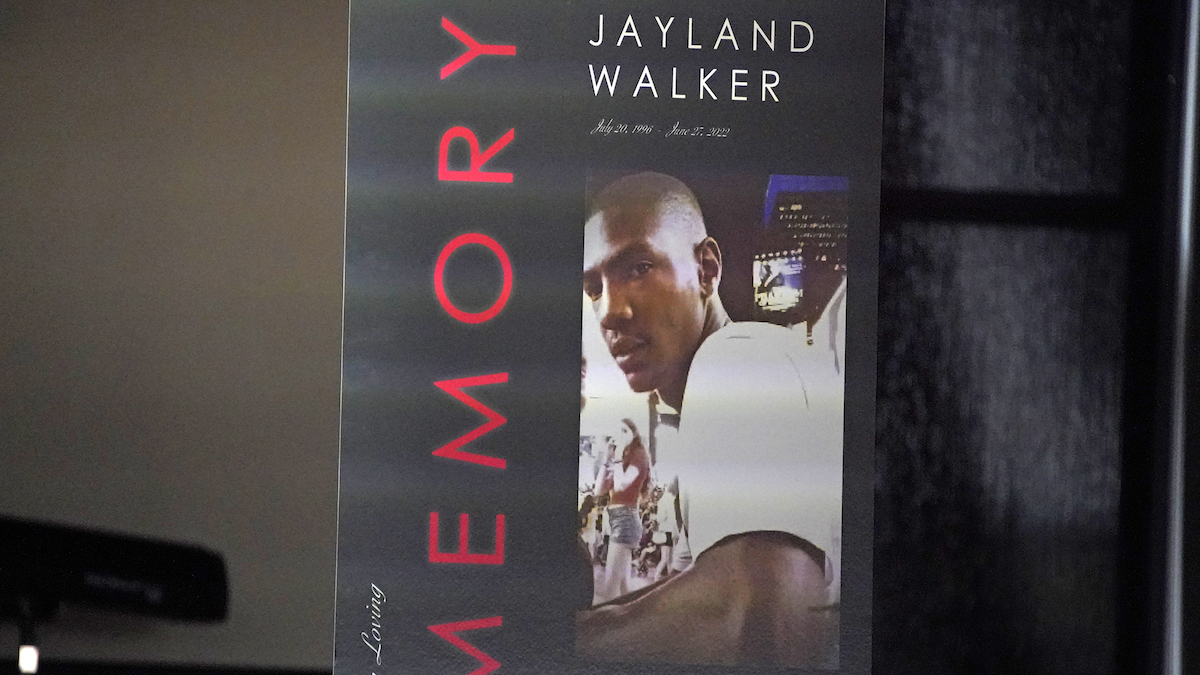
Social justice activists called for widespread police reforms while marching through the streets of Akron on Tuesday, a day after a grand jury declined to indict eight police officers who fired 94 shots at Jayland Walker, a 25-year-old Black man killed after what started as a traffic stop.
Organizers of the march told dozens of protesters to make their voices heard but urged them not to become violent.
Protests following Walker's death and the release of body-camera footage of the shooting led to daily protests last summer and a citywide curfew. City leaders in recent days set up a protest zone downtown in anticipation of more demonstrations.
Walker was shot 46 times in a barrage of gunfire that lasted just under seven seconds on June 27 after he jumped out of his still-moving car and ran from police.
Get top local stories in DFW delivered to you every morning. >Sign up for NBC DFW's News Headlines newsletter.
Ohio Attorney General Dave Yost said Monday the state’s investigation found that Walker fired at least one round at officers while he was in his car and then later while he was running on foot, he reached toward his waistband and raised a hand as officers were chasing.
Read More
The officers, not knowing Walker left his gun in the car, believed he was going to fire again, Yost said.
Representatives of Walker's family and some local leaders, including Democratic U.S. Rep. Emilia Sykes, have called on the U.S. Justice Department to investigate the Akron Police Department.
On Tuesday, Walker's mother and sister rode in a vehicle leading the protest through the city while marchers carrying Black Lives Matter flags and “Justice for Jayland” signs followed behind.
Longtime activist Tamika Mallory told a crowd before the march that firing nearly 100 shots “is not policing we want in our community.”
“That is not humane. It is not right. It is something we must challenge,” she said.
Bobby DiCello, an attorney for Walker’s family, said that those who came to the march were lifting the spirits of his surviving relatives. “You are helping this family. You are helping them find meaning in their day,” he said.
He also wanted everyone to know that Walker, who had no criminal history and recently worked as a food delivery driver and volunteered as a wrestling coach, was “not the kid on the corner, he was not the guy on the streets.”
DiCello disputed how the state's investigation described Walker as shooting at police when he fired outside his car window.
“There’s no gun pointed at anyone. You don’t see it ever,” he said in an interview with The Associated Press.
At the time of the shooting, Walker was grieving his fiancée’s recent death, and state investigators were asked Monday at a news conference if his death could have been suicide.
Anthony Pierson, an assistant state attorney general, declined to speculate about Walker’s state of mind and said there was no direct evidence he was suicidal.
Authorities checked Walker’s online history and found in the weeks before his death searches for phrases including “drinking bleach” and “quickest ways to die,” according to the state's investigative report.
DiCello said Walker had been distraught, but that didn't play a role in his death.
“Did he look at things that people look at after they lose someone? Yeah. Does that have anything to do with 96 bullets? No,” he said. “Because a young man was in distress, you’re saying that the force we used was OK because he wanted to die anyway?” ___
Seewer reported from Toledo.



